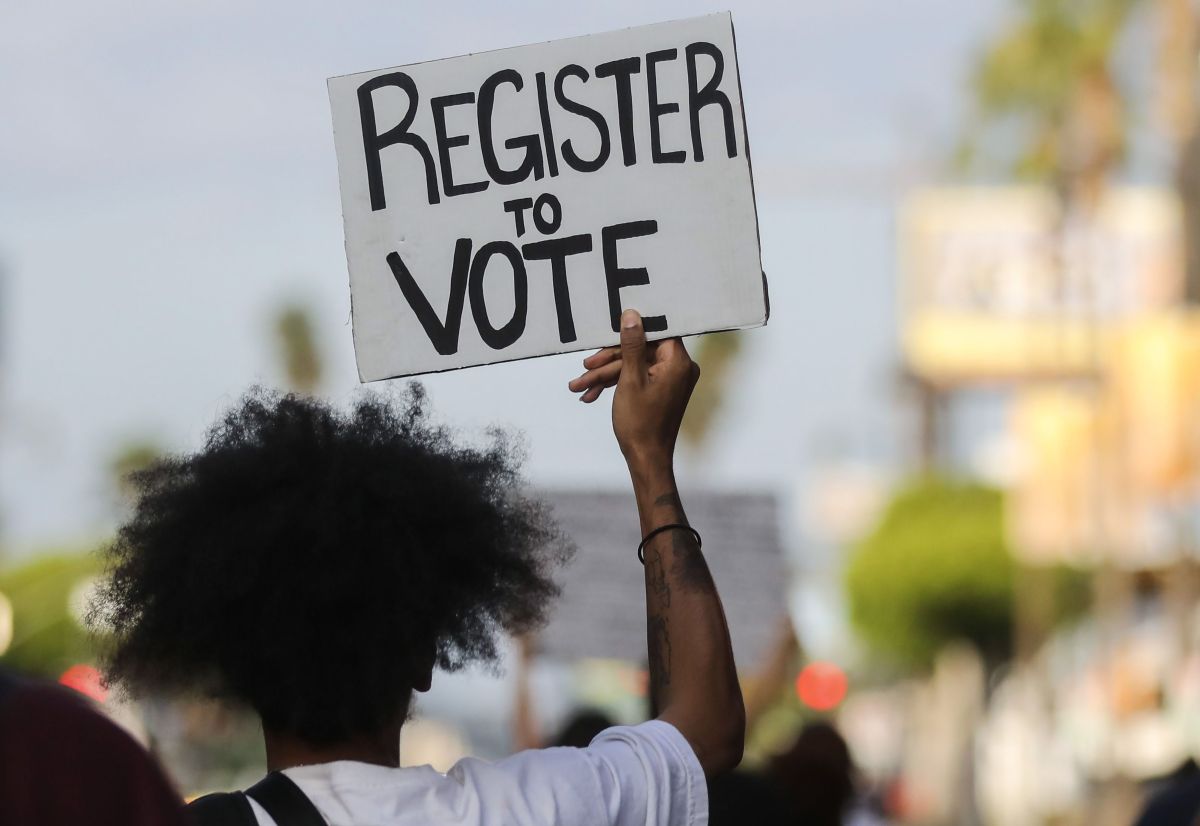A federal judge in Florida on Monday blocked parts of a new law passed by the legislature on voter registration, following a motion filed by two civic organizations, a decision the Democratic Party called a “great victory for the people” of this state. .
In a preliminary injunction, Judge Mark E. Walker of the Northern District Court of Florida in Tallahassee rules in favor of the motion filed by the National Association for the Advancement of Colored People (NAACP). and the Hispanic Federation on two aspects of the new law 7050.
In the 58-page document to which EFE had access, the magistrate points out that “Florida can, of course, regulate the elections, including the voter registration process”; but that, in this case, “the impugned provisions exemplify something that Florida has struggled with in recent years: governing within the limits established by the Constitution” of the United States.
“When the power of the state government threatens to stretch beyond constitutional limits and reduce individual rights to ashes, the federal judiciary stands as a firewall,” he considered in his opinion.
For the Florida Democratic Party, this preliminary injunction against parts of the Senate bill (7050), “which prevents the state from enacting the new voter suppression provisions,” is a judicial setback for Florida’s governor, the Republican Ron DeSantis, and “his cronies in the legislature.”
DeSantis “has a hard time governing within the limits set by the Constitution of the United States,” Nikki Fried, chair of the Florida Democrats, said in a statement.
The law already deserved criticism last May from civil rights organizations and even from former President Donald Trump, who pointed out that it weakens “electoral integrity in Florida.”
The measure, among other things, places more restrictions on voting by mail and increases fines (some up to $50,000) for organizations that register voters and fail to comply with current regulations.
“Our efforts must focus on protecting voters by eliminating voter registration deadlines to broaden participation in our democracy. Instead, we are penalizing organizations that encourage people to vote, ”he said in a statement sent to EFE in May by Kirk Bailey, of the Florida branch of the American Civil Liberties Union (ACLU).
Already in 2022, an appeals court restored parts of a controversial Florida electoral law of 2021 that had been suspended in March by the same judge, who considered them unconstitutional and thus agreed with several organizations that filed the lawsuit.
It is expected that the state of Florida will now appeal Judge Walker’s decision before the Court of Appeals for the Eleventh Federal Circuit, based in Atlanta, Georgia, as it already did in the cited case.
Judge Walker has been highly critical of Florida’s election laws in terms of their goal and achievement of voter suppression.
Some 200 bills approved this year by the state Congress, with a Republican majority, began to take effect on July 1, including some of an ultra-conservative nature.
The Democratic opposition alleges that they are part of DeSantis’ “political agenda” for the Republican primaries from which the nominee for this party for the 2024 presidential elections will emerge.
In recent months, several pro-immigrant and human rights organizations have issued “travel advisories” for those minorities, immigrants and the LGBTQ+ community who plan to travel to Florida, due to laws passed that, in their opinion, are hostile and restrictive.
The organization Equality Florida, of the LGBTQ community, warned those who plan to travel or settle in this state that there are laws and policies in force, or on the way to being, that pose “a serious risk” to their health and safety.
Equality Florida’s “travel advisory” is similar to one previously released by the largest African American community organization, the NAACP, or the Florida Immigrant Coalition.
